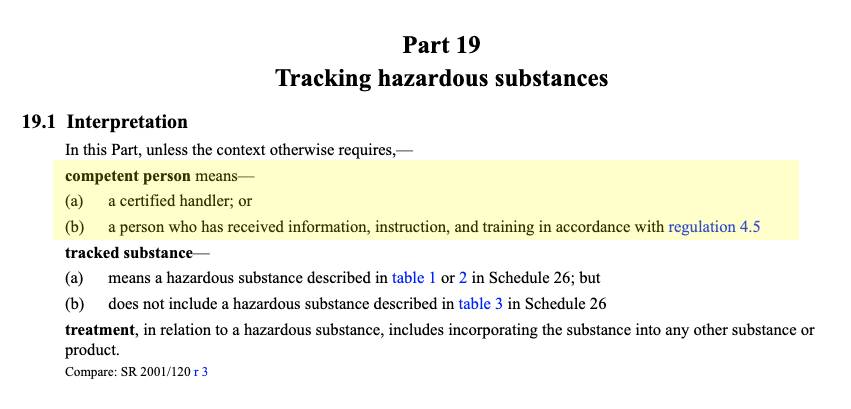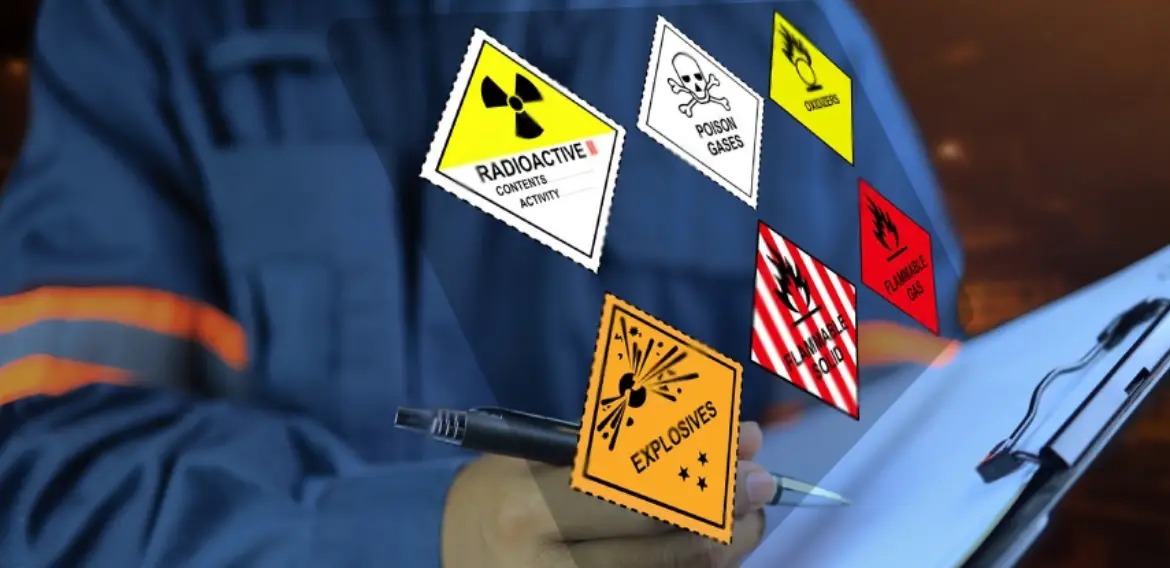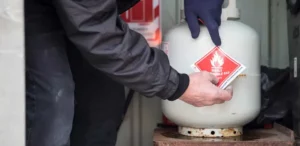Prior to the Hazardous Substances Regulations 2017 coming into law, if you were a business there was a requirement to have workers who were trained around the dangerous goods substances that are on site. These workers were required to undergo certification to be known as Approved Handlers. Back then, only one or two Approved Handlers were required, regardless of how many staff were dealing with the substance.
This certificate had a five year expiry date, which means anyone with a certificate that was issued prior to 2017 would have now well and truly expired. We still have many people asking for Approved Handler training when this just no longer exists.
Another common misunderstanding we get is around Certified Handlers and Competent Persons. Many mistake the Certified Handler as replacing Approved Handlers, and Competent Persons as a trainee Certified Handler. However, that is incorrect as we will discuss further in this article.
In short, what used to be known as Approved Handlers is now Competent Persons and, rather than having to undergo a full certification process, Competent Persons only need to be trained under the requirements as outlined in Regulation 4.5 of the Hazardous Substances Regulations – The other major change? all staff who use, handle, store or manufacture hazardous substances must be trained. So you can no longer simply have one or two staff trained and call it a day.

What do the regulations say?
In the Hazardous Substances Regulations 2017, the definition of a Competent Person is outlined in Part 19. As we keep this section of the regulations in the back our minds, we refer back to Regulation 4.5 to subsequently identify the training requirements, where Regulation 4.5 stipulates the Duty of PCBU to provide information, training, and instruction. We can see that a PCBU must ensure that every worker who uses, handles, manufactures, or stores a hazardous substance (including hazardous waste) is, before the worker is allowed to carry out or supervise work involving those substances, provided with training.


So who are considered workers?
Referring back to the Health and Safety at Work Act 2015, workers are defined under Section 19 as an individual who carries out work in any capacity for a PCBU. This includes employees, contractors, volunteer workers, interns or trainee apprentices, and so on.

What about Certified Handlers?
Workers who deal with Class 6.1A or 6.1B substances must be certified as Certified Handlers, as the risks associated with these substances are some of the worst that anyone is likely to encounter.
Not only must they receive training around the requirements of Regulation 4.5, they must also fulfil the criteria outlined in Regulation 4.3, of which includes an evidence gathering and verification process which only qualified Compliance Certifiers can sign off on. The certificate for Certified Handlers are issued and last for five years.
Only certified handlers are permitted to handle the substance, and if someone else onsite needs to use the substance they must be supervised by the certified handler on site at all times. This supervision must be documented.

In summary
If you have hazardous substances on site, all workers who uses, handles, manufactures, or stores them must receive training around the requirements of Regulation 4.5 and are known as Competent Persons, replacing what used to known as Approved Handlers.
If you have Class 6.1A or Class 6.1B substances on site, you must then also have workers who have been certified as Certified Handlers.
For additional information around the Certified Handler process, you can download our application form and the WorkSafe performance standard below. Otherwise please contact us on 0800 474 338 or email hello@rifft.co.nz


